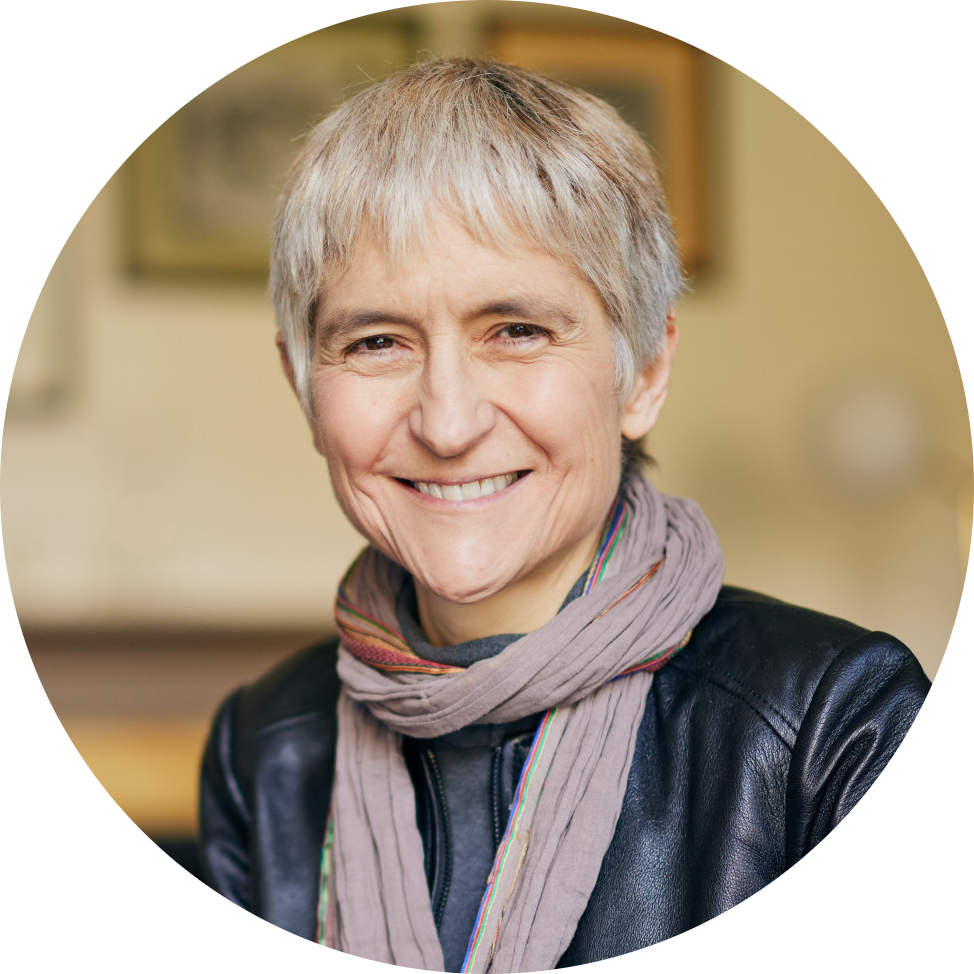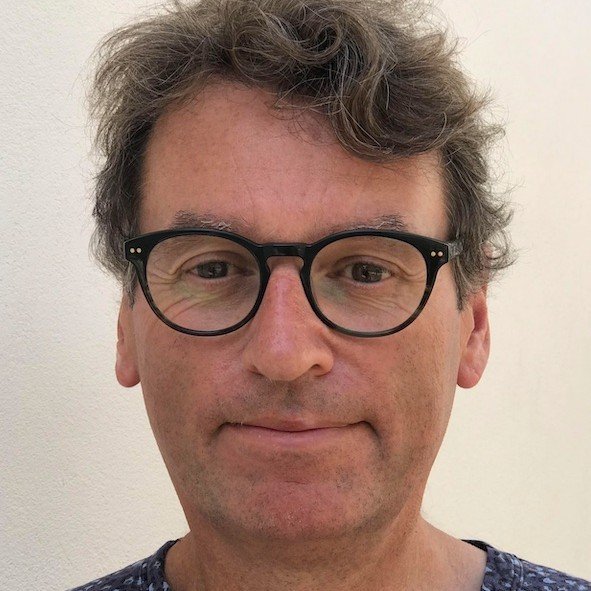
Meet our editorial board
Jean-Claude Burgleman
Vrije University Brussels, Belgium
Editor in Chief
-
Jean-Claude Burgelman is emeritus professor of Open Science at the Free University of Brussels. He retired in 2020 from the European Commission where he was in charge of Open Science policies. Till 2000 he was full professor of communication technology policy at the Free University of Brussels.
He recently joined the advisory board of Open Knowledge Maps, Scimagine and became the editor in chief of Frontiers Policy Lab.
In 2022 he became the director of the Frontiers Planet Prize, a global competition to stimulate science that can save the planet.
-
Dr. Ruth Morgan is a Professor of Crime and Forensic Science, Director of the Centre for the Forensic Sciences at University College London, and Co-Director of the UCL Arista Institute. She also currently serves as the Vice Dean (Interdisciplinarity Entrepreneurship) of the Faculty of Engineering Sciences at UCL. Her research addresses the accurate interpretation of forensic science evidence, the intersection of science and policy, and the need for innovative interdisciplinary approaches that transcend disciplinary and institutional borders. She is a regular speaker and advocate for innovative thinking that creates sustainable solutions to global challenges.
Ruth Morgan
University College London, United Kingdom
Anindita Bhadra
Indian Institute of Science Education & Research Kolkata, India
-
Dr. Anindita Bhadra is an Assistant Professor of Behavioural Biology. She previously acted as the Co-Chair and is now an alumnus of the Global Young Academy, as well as the Founding Chair and an alumnus of the Indian National Young Academy of Science. Her research focuses on stray dogs in India to map their behavioral evolution and the human-dog relationship. Recently, she has been highlighting the impacts of Covid-19 and the challenges that affect the move to Open Science in the Global South.
Claire Craig
International Network for Governmental Science Advice, United Kingdom
-
Dr Claire Craig is an Emeritus Fellow of the Queen’s College, Oxford, where she served as Provost from 2019 to 2025. She has extensive experience in science-related public reasoning, decision-making, and strategy. Before moving to Oxford, Claire served as Chief Science Policy Officer at the Royal Society. During her government career, she worked for three UK Government Chief Scientific Advisors, was a member of the Prime Minister's Delivery Unit, and served as Director of the Government Office for Science. Claire was awarded a CBE for her role in developing Foresight, the UK’s science-based strategic futures programme. She has been a member of faculty at the World Economic Forum and a member of the UK Prime Minister’s Delivery Unit. Claire began her career as a geophysicist. Her first book is called How does government listen to scientists? and her second, co-authored with Professor Sarah Dillon, is Storylistening: Narrative Evidence and Public Reasoning.
Caroline Wagner
The Ohio State University, United States of America
-
Dr. Caroline S. Wagner serves on the faculty of the John Glenn College of Public Affairs at the Ohio State University. She also acts as an advisor to the Battelle Center for Science and Technology Policy, sits on the advisory board of the OSU ADVANCE program promoting women's advancement in science and engineering, and serves as a consultant to the United Nations on the Sustainable Development Goals. She studies science and technology, highlighting the relationships between these and policy, society, and innovation. Dr. Wagner spent much of her career as a policy analyst with the RAND Corporation and the Science & Technology Policy Institute and continues to speak on the importance of science and policy.
Paolo Vineis
Imperial College London, United Kingdom
-
Professor Paolo Vineis serves as the Chair of Environmental Epidemiology at Imperial College, London. He leads the "Molecular Signatures and Pathways to Disease" theme of the MRC Centre for Environment and Health at Imperial College. His research interests focus on how environmental changes impact human health and molecules. He is a member of the National Academy of Sciences (Accademia dei Lincei) in Italy and of the Ethics Committee of the International Agency for Research on Cancer. Professor Vineis has coordinated several EU-funded projects on the exposome and environmental health.
-
Professor Nova Ahmed is a Professor in the Department of Electrical and Computer Engineering at North South University. Her research focuses on human centered computing, as well as healthcare, Computing for Good, education, Cloud and Distributed Computing, Sensor and Systems, Feminist HCI, ICT for D, privacy, and social justice. She is an alumni of the Global Young Academy and a founding member of the National Young Academy Bangladesh and Kaan Pete Roi. Dr. Ahmed is also a Fellow of Sangat, as well as a member of the SIGCHI Cares Committee and Asian HCI. She volunteers for the Bangladesh Mathematical Olympiad, Children's Science Congress and Missing Daughter's Initative.
Nova Ahmed
North South University, Bangladesh
-
Salvatore Aricò was appointed as ISC’s Chief Executive Officer in January 2023. An oceanographer by training, he was in charge of ocean science at the UN Intergovernmental Oceanographic Commission, Executive Secretary of the UN Secretary-General’s Scientific Advisory Board, Senior Research Fellow at the United Nations University, Chief of Programme at the Convention on Biological Diversity. Salvatore’s academic engagements and achievements include researcher University of Delaware, affiliate professor Parthenope University of Naples and Universiti Terengganu and UCSI University in Malaysia, and the supervision of graduate students. He has authored or co-authored close to 100 scientific publications and has been involved in journals’ editorial committees/acted as book editor.
Salvatore Arico
International Science Council, France
Luc Soete
Brussels School of Governance, Belgium
-
Dr. Luc Soete is a Professor and the Dean of the Brussels School of Governance. He is also an Honorary Professor of international economics at Maastrict University, The Netherlands and the Dean of the Institute for European Studies and Vesalius College. He also serves as the Vice-Chairman on the Supervisory Board of the Technical University Delft (TUD). He is on the Advisory board of the University of Sussex Business School and the UNU Institute on Comparative Reigonal Integration Studies. Dr. Soete is a member of the Economic and Social Impact of Research group within the European Commission, as well as the Royal Dutch Academy of Arts and Sciences. His research focus and career interests lie in innovation and technological change, as well as policy surrounding these areas.
Archana Sharma
CERN, Switzerland
-
Recently honoured with the highest civilian award for Indians living abroad, by the President, Government of India, the Pravasi Bhartiya Samman, and Bharat Gaurav at the British Parliament, Dr. Archana Sharma is a Principal Staff Scientist at the CERN Laboratory in Geneva active in the field since 1989 in high energy physics. A Ph.D. from Delhi University in 1989, a D.Sc. from the University of Geneva in 1996, and an MBA from International University in Geneva Archana has worked at CERN experiments on R&D and commissioning of large-scale radiation detectors. She is the founder and Project Manager of CMS GEM Collaboration since 2008, bringing a new technology GEM (Gas Electron Multiplier) - for exploiting one of the most sensitive detectors with the highest discovery potential. Archana also serves as Senior Advisor for Relations with International Organisations at CERN, in support of CERN's objective of integrating and highlighting fundamental research towards Science Diplomacy, and Sustained Development Goals. Dr. Sharma is Head of the Engagement Office for the ‘Compact Muon Solenoid’ Experiment at CERN which connects her with a collaboration spanning 57 countries and about 250 institutions. She is well known for her relentless efforts in mentoring hundreds of young students particularly girls in STEM, via her NGO based in New Delhi. Archana is also a patent owner of a family of gas detectors, an author of over 1200 publications and 3 popular science books
Mat Collins
University of Exeter, United Kingdom
-
Dr. Matthew Collins is a Professor of Climate Change at the University of Exeter, as well as the Joint Met Office Chair in Climate Change.. He is the Field Chief Editor for Frontiers in Climate, launching the section Predictions and Projections. His research interests lie in the physical science of climate and climate change, with the majority of his work in complex climate models.
Ona Ambrozaite
UK Science and Technology Network, United States of America
-
Dr. Ona Ambrozaite is the Director of the US East Coast for the UK Science and Technology Network based in Boston, with a Ph.D. in Chemistry from the Johns Hopkins University. Ona’s Ph.D. work focused on developing novel semiconducting quantum materials with applications in quantum sensing, computing, communication, and beyond. In her current role, Ona leads the deployment of science diplomacy to build partnerships, support UK policy, and foster collaborations around the world on priority areas in science, innovation, and technology ranging from quantum to fusion and AI.
Ona spearheaded the field of science diplomacy at Johns Hopkins and wider Washington, D.C., resulting in the launch of the Johns Hopkins Science Diplomacy Hub and the first major international Science Diplomacy Summit in D.C. together with 2003 Nobel Laureate in Chemistry Prof. Peter Agre, bringing together close to 1000 diplomats, academics, policymakers, and researchers from 35+ countries working at the interface of science and diplomacy. Ona has also led the launch of the Science Diplomacy Grid, a global network linking organizations advancing science diplomacy through collaboration, policy, and global partnerships on topics ranging from quantum information science to innovation in multilateralism in order to translate cutting-edge research for global science policy development.
With a multidisciplinary background ranging from biochemistry and molecular genetics to semiconductors and quantum information science, Ona spearheads the deployment of science diplomacy as a tool to advance international research and innovation partnerships and build strong synergies between academic fields, industry, government, philanthropies, and other sectors.













